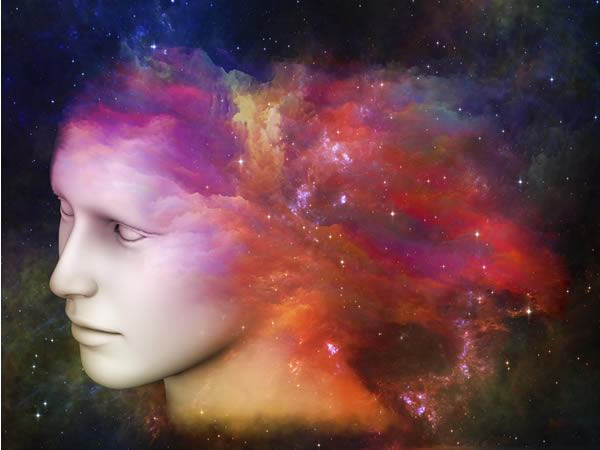What is happening in your mind. Do you know what dreams are?
Hello friends, today I leave a bit of routine and I will be talking about dreams.

What is a dream
All of us at some point have the experience of dreaming and therefore we know what a dream is and we have the experience that it is something more than what we have, that our stories do not capture them in an exact way, nevertheless the scientific knowledge of the dreams should be based on the narrations that are made of them, because it is not worth analyzing our own dreams exclusively to make a theory about them.
Hobson (2000) describes what a dream is like: "The mental activity that occurs in the dream is characterized by a vivid sensorimotor imagination that is experienced as if it were awake reality, despite cognitive characteristics such as the impossibility of time, place, people and actions; Emotions, especially fear, rejoicing, and anger, predominate over sadness, shame, and guilt, and sometimes reach enough strength to awaken the sleeper; the memory, even of the very vivid, is tenuous and tends to vanish quickly after waking up unless special measures are taken to retain it. "

We can emphasize that some people say, that dreams are related to the experiences lived during the day. What is true in here?
The dreams come about as a result of a complicated process involving memories and the hippocampus, a region of the brain associated with memory, as determined by research by Canadian scientists. This research has also been able to establish that the memories we dream of can be up to a week old, which has revealed the memory's hidden function until now: our memories pass from one region of the brain to another before being stored and we dream about them during that interval. By Marta Morales.
The experiences that we have throughout the day are usually the origin of the dream images that we generate while we sleep. But what are the mechanisms that allow us to build such images? And, do the images have any relation to the formation of our memory?
Both questions are difficult to answer, since dreams are a very complicated field of study. They can not be analyzed directly, but always through the dreamer every minute that passes, they forget more and more details of what they have dreamed.
In non-REM sleep (NREM) which is also called slow sleep, four stages are distinguished (Bobes, Diaz and Bomper, 1999):
Stage 1 of transition from wakefulness to sleep, occupies about 5% of sleep time in healthy adults, alpha waves disappear in the EEG correspond to wakefulness and are replaced by slower waves (theta waves) own sleep NREM There is also a slowing of the heartbeat. During this phase, the dream is easily interrupted. This stage lasts a few minutes.
Stage 2 appears after 1 and represents more than 50% of sleep time. It is characterized by electroencephalographic waves with a higher frequency than theta. The muscle tone becomes somewhat weaker and the threshold of awakening rises. It corresponds to the principle of the dream itself.
Stages 3 and 4 correspond to the deepest sleep because during them the delta waves appear, which are very slow. The muscle tone is weak and the heart rate and respiratory rate decrease. During them, dreams occur, as well as episodes of nocturnal terror in the child and episodes of sleepwalking. Eye movements, if they exist, are slow.
After going through these stages, for about 70 to 120 minutes, the first REM phase (Rapid Eye Movement) is usually presented. The time it takes to start this phase will give us REM latency. REM sleep occupies 20% of the total sleep time in adults, although it varies with age, being greater in children and in it there are discharges of rapid eye movements and a complete suspension of muscle tone, respiratory rate and pulse become faster and irregular. The different phases of sleep alternate cyclically throughout the night, during the first part of the dream NREM sleep predominates and during the second the REM periods become longer. During normal sleep, waking periods appear so brief that they may not be remembered the next day.

Different theories
There are several theories about why we sleep. Some scientists claim that dreams respond to chance, and that they do not have a meaning. They are due to the structure of the brain. For Nielsen and his team, however, this structure is important, but that does not mean that dreams are meaningless.
According to them, they are not a useless product, only derived from our brain activity, but they have to do with the expression of our subconscious. This differs from the fact that dreams seem to take place in spatially coherent places, in environments in which dreamers interact perceptively, for example, orienting themselves, or seeking and assimilating information, just as we do awake. They do not seem random. Likewise, the individual usually finds meaningful information and has a sense of recognition within the dream environment.
Research in the dream phase of our consciousness could give an answer, not only to the reasons for its origin, but also to the way in which autobiographical memories are consolidated over time in our minds.

Sources: https://translate.google.co.ve/translate?hl=es-419&sl=en&u=https://www.scientificamerican.com/article/what-is-dreaming-and-what-does-it-tell-us-about-memory-excerpt/&prev=search
https://translate.google.co.ve/translate?hl=es-419&sl=en&u=https://www.psychologytoday.com/blog/the-superhuman-mind/201212/lucid-dreaming-and-self-realization&prev=search
Pictures:
https://www.google.co.ve/search?q=imagenes+de+sue%C3%B1os&source=lnms&tbm=isch&sa=X&ved=0ahUKEwiTqrbmh_7YAhURON8KHa_HAy0Q_AUICigB&biw=1024&bih=504#imgrc=u5v4_kAwLxktTM:
https://www.google.co.ve/search?q=imagenes+de+sue%C3%B1os&source=lnms&tbm=isch&sa=X&ved=0ahUKEwiTqrbmh_7YAhURON8KHa_HAy0Q_AUICigB&biw=1024&bih=504#imgrc=aCU3VBo4tcjxgM:
https://www.google.co.ve/search?q=imagenes+de+sue%C3%B1os&source=lnms&tbm=isch&sa=X&ved=0ahUKEwiTqrbmh_7YAhURON8KHa_HAy0Q_AUICigB&biw=1024&bih=504#imgrc=LtNDvoQQY0-LMM:
https://www.google.co.ve/search?q=imagenes+de+sue%C3%B1os&source=lnms&tbm=isch&sa=X&ved=0ahUKEwiTqrbmh_7YAhURON8KHa_HAy0Q_AUICigB&biw=1024&bih=504#imgrc=LwJKiX2dMEUpUM:
I hope you like my post, you can follow me through @villejessi
thanks for providing you text in English
for that we are friend
I've been a lucid dreamer for nearly a decade, so I always go into these articles with a bit of caution, but not a bad post here. From my experiences, I think dreams are kind of all of the above; memory/recent events, random/active imagining and making abatract connections, and of course some symbolic representative things that can be obvious or not that relate to something in our unconscious. I always saw the subconscious as more of the mediator between conscious and unconscious minds, so all the long term really heavy shit that is revealing about the self is likely there. The subconscious is more of a clerk on the phone with the conscious mind and digging in a file cabinet of the unconscious to see how everything fits and connects within. From a lucid dreamer's perspective, at least.
@resteemator is a new bot casting votes for its followers. Follow @resteemator and vote this comment to increase your chance to be voted in the future!